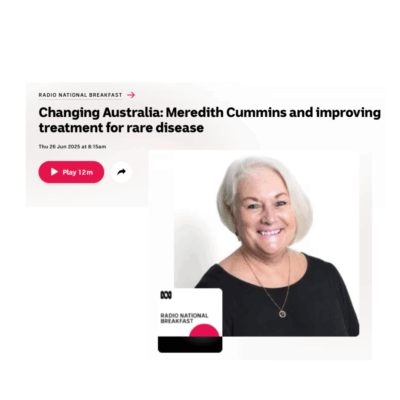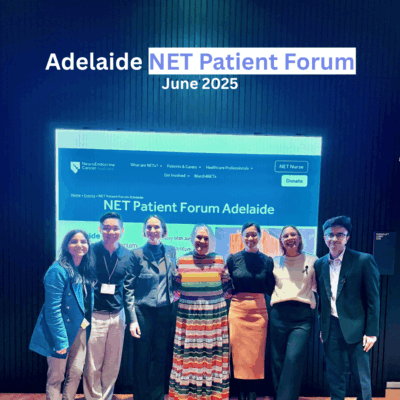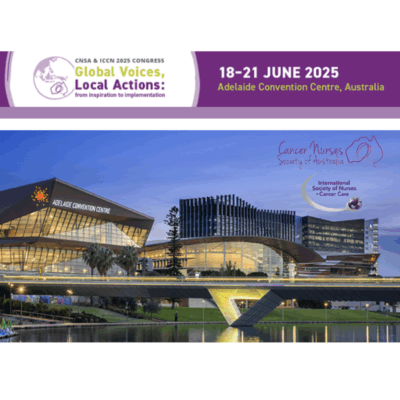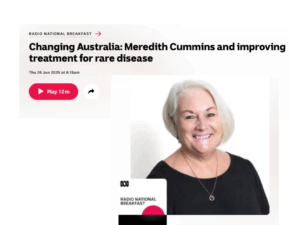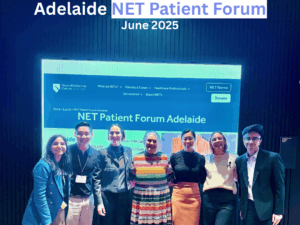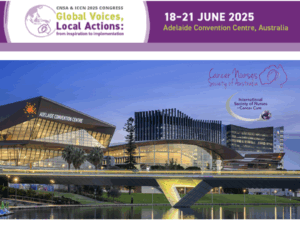The ASCO Annual Conference was held virtually this year from 29 – 31 May 2020 with 32 Neuroendocrine presentations from this meeting delivered orally, by abstract and poster and NeuroEndocrine Cancer Australia contributing to several of the presentations.
The following are 4 presentations from the conference including 2 which NeuroEndocrine Cancer Australia were co-authors:
- Multicenter analysis of treatment outcomes for well differentiated grade 3 neuroendocrine tumors (NET G3).
- Australasian Gastrointestinal Trials Group (AGITG) CONTROL NET Study: Phase II study evaluating the activity of 177Lu-Octreotate peptide receptor radionuclide therapy (LuTate PRRT) and capecitabine, temozolomide CAPTEM)—First results for pancreas and updated midgut neuroendocrine tumors (pNETS, mNETS).
- Survey of challenges in access to diagnostics and treatment for neuroendocrine tumor (NET) patients (SCAN): Awareness of specialized techniques and latest interventions.
- Inefficacy of Chromogranin A assays as neuroendocrine tumor diagnostic tools compared to the NETest.
Below is a detailed account of each of these presentations.
Multicenter analysis of treatment outcomes for well differentiated grade 3 neuroendocrine tumors (NET G3)
Authors:
Leonidas Apostolidis, Arianna Dal Buono, Elettra Merola, Henning Jann, Dirk Jaeger, Bertram Wiedenmann, Eva Caroline Winkler, Marianne Pavel; Department of Medical Oncology, National Center for Tumor Diseases, Heidelberg University Hospital, Heidelberg, Germany; Department of Gastroenterology and Hepatology, Charité University Medicine, Berlin, Germany; Department of Endocrinology, Friedrich Alexander University Erlangen-Nürnberg, Erlangen, Germany
This was a retrospective analysis of all patients with NETG3 in the Neuroendocrine Neoplasm database of 3 German cancer centres. In the most current WHO classifications from 2017 and 2019 well differentiated grade 3 neuroendocrine tumours (NET G3) have been distinguished from poorly differentiated neuroendocrine carcinomas (NEC G3). The retrospective data suggests that commonly used first line chemotherapy protocols with Cisplatin and Carboplatin combined with Etoposide(PE) are less effective in NET G3 than NEC. Therefore, current treatment guidelines suggest alternative first line treatment protocols like temozolomide – based (TEM), streptozotocin – based (STZ) and FOLFOX which have only been studied in second-line to date. The aim of this multi-centre analysis was to evaluate treatment outcomes for NET G3 with a focus on the efficacy of different first-line treatments.
The conclusions of this first multi-centre analysis of the different treatment strategies for NET G3 the patients receiving upfront treatment with non (PE) regimens had a significantly prolonged Progression Free Survival (PFS). Median PFS for PE was 5.2 months compared to the other treatment groups – 6.0 months for FOLFOX, 12.0 months for TEM, 5.7 months for STZ and 14.1 months for other (including targeted agents, somatostatin analogues, PRRT and multimodal combinations). Of the defined protocols, FOLFOX showed the highest Overall Response Rate (ORR) and TEM the longest PFS. As a result further prospective evaluation of the optimal therapeutic strategy is needed.
Australasian Gastrointestinal Trials Group (AGITG) CONTROL NET Study: Phase II study evaluating the activity of 177Lu-Octreotate peptide receptor radionuclide therapy (LuTate PRRT) and capecitabine, temozolomide CAPTEM)—First results for pancreas and updated midgut neuroendocrine tumors (pNETS, mNETS).
Authors:
Nick Pavlakis, David Turner Ransom, David Wyld, Katrin Marie Sjoquist, Rebecca Asher, Val Gebski, Kate Wilson, Andrew Ddembe Kiberu, Matthew E. Burge, William Macdonald, Paul Roach, David A. Pattison, Patrick Butler, Timothy Jay Price, Michael Michael, Benjamin James Lawrence, Dale L. Bailey, Simone Leyden, John Raymond Zalcberg, J. Harvey Turner; Northern Cancer Institute, St Leonards, Sydney, Australia; St John of God Clinic, Subiaco, Australia; Royal Brisbane & Women’s Hospital, Brisbane, QLD, Australia; NHMRC Clinical Trials Centre, The University of Sydney, Sydney, Australia; NHMRC CTC Centre, University of Sydney, Camperdown, Sydney, Australia; NHMRC Clinical Trials Centre, University of Sydney, Sydney, Australia; NHMRC Clinical Trials Centre, Sydney, Australia; Royal Perth Hospital, Perth, WA, Australia; Royal Brisbane and Women’s Hospital, Brisbane, QLD, Australia; Fiona Stanley Hospital, Perth, Australia; Royal North Shore Hospital, St Leonards, Australia; Royal Brisbane and Women’s Hospital, Brisbane, Australia; St George Hospital, Sydney, Australia; Queen Elizabeth Hospital, University of Adelaide, Adelaide, Australia; Division of Cancer Medicine, Peter MacCallum Cancer Centre, Melbourne, Australia; Yale Univ, Easton, CT; PharmaScint, Sydney, Australia; Unicorn Foundation, Victoria, Australia; Peter MacCallum Cancer Centre, Melbourne, Australia
The CONTROL NETs study conducted at multiple sites around Australia was a non-comparative randomised open label parallel group phase II trial with 2:1 randomisation to PRRT / CAPTEM vs PRRT (mNETs control) and CAPTEM (pNETs control). CAPTEM is an accepted regimen for patients (pts) with advanced pNETs. Single agent 177Lu-Octreotate PRRT is now a standard of care for progressive WHO Grade (G) 1/2 mNETs. High activity was seen with LuTate/CAPTEM in a single arm Phase I/II trial. This study was undertaken to determine the relative activity of adding CAPTEM to LuTate PRRT in pts with mNETs and pNETs.
Conclusions drawn to date are that CAPTEM / PRRT is active and meeting its target landmark PFS for CAPTEM / PRRT (12 months pNETs; 15 months mNETS) with numerically greater Objective Tumour Response Rate (OTRR) in both mNETs and pNETs, however there was more haematological toxicity in mNETs. Due to activity being high in both control arms there will be a longer follow up period so that it can be determined if the relative activity of PRRT / CAPTEM is sufficient to conduct a Phase III evaluation.
Survey of challenges in access to diagnostics and treatment for neuroendocrine tumor (NET) patients (SCAN): Awareness of specialized techniques and latest interventions.
Authors:
Mark McDonnell, Dirk Van Genechten, Teodora Kolarova, Dermot O’Toole, Harjit Singh, Jie Chen, James R. Howe, Simron Singh, Catherine Bouvier, Christine Rodien-Louw, Simone Leyden, Sugandha Dureja; NET Patient Network, Dublin, Ireland; VZW NET & Men Kanker Belgium, Kortrijk, Belgium; International Neuroendocrine Cancer Alliance, Boston, MA; National Centre for Neuroendocrine Tumours, St. Vincent’s University and Department of Clinical Medicine, St. James Hospital and Trinity College, Dublin, Ireland; Prince Court Medical Centre 39, Jalan Kia Peng, Kuala Lumpur, Malaysia; The First Affiliated Hospital, Sun Yat-sen University, Guangdong, China; University of Iowa Carver College of Medicine, Iowa City, IA; Sunnybrook Odette Cancer Centre, University of Toronto, Toronto, ON, Canada; NET Patient Foundation, Leamington Spa, United Kingdom; APTED Association de Patients Porteurs de Tumeurs Endocrines Diverses, Lyon, France; Unicorn Foundation, Victoria, Australia; Department of Nuclear Medicine & Molecular Imaging, Fortis Memorial Research Institute, Gurgaon, India
This truly international survey, SCAN, measured global readiness to provide diagnostics and treatments for NET patients in terms of awareness, availability, quality and affordability. This analysis focused on patient and healthcare professional (HCP) awareness of NET diagnostics and treatments. It was conducted September to November 2019 by NET patients and HCPs. There were 2795 respondents from 68 countries across 6 continents (2359 patients / carers and 436 HCPs). The results showed biopsy to be the most well-known diagnostic option, by patient / carers and HCPs, the next was CT. As would be thought more HCPs were aware of specialised diagnostics such as Ga-DOTA PET CT and Chromogranin A than patients. Not surprisingly surgery was known by both groups as a treatment option. Somatostatin analogues were recognised by 90% of HCPs as a treatment option as opposed to only approx. 70% of patient / carer group. Nearly a quarter of HCPs and one third of patients had not heard of Peptide Receptor Radionuclide Therapy (PRRT).
This survey has made the conclusion evident that increased awareness of NET diagnosis and treatments, in particular newer specialised tools, amongst both HCPs and patient / carers to ensure there are continued advancements and improvements in the global standard of care for NETs.
Inefficacy of Chromogranin A assays as neuroendocrine tumor diagnostic tools compared to the NETest.
Authors:
Anna Malczewska, Mark S. Kidd, Alexandra Kitz, Beata Kos-Kudla, Irvin Mark Modlin; Medical University of Silesia, Katowice, Poland; Wren Laboratories LLC, Branford, CT; Division of Endocrinology, Medical University of Silesia, Katowice, Poland; Yale School of Medicine, New Haven, CT
Chromogranin A (CgA) remains a commonly used diagnostic and monitoring tool for neuroendocrine tumor disease despite NCCN guidelines identifying it as a category 3 (major concerns about utility) biomarker. We sought to directly evaluate the accuracy of detecting NET disease using two different CgA assays, one in the USA (NEOLISA, EuroDiagnostica, IBL-America, CLIA-certified laboratory) and one in an ENETS CoE (CgA ELISA, Demeditec Diagnostics, Germany). We compared the results to the NETest, a circulating mRNA assay, recently validated as an IVD for NETs.
The results of this review showed that NEOLISA assay CgA levels were significantly higher vs the DD assay, the NEOLISA assay detecting more CgA positive samples 48 / 136 vs 28. The NETest, in contrast was positive in 135 / 136 – 99%. In summary two standard CgA assays used in NET management (one accepted by Medicare in the USA, the second used at a CoE in Europe) only detect NET disease in 21 – 35% of cases. In contract mRNA fingerprint, the NETest, is ~99% accutate in detecting NET disease.



